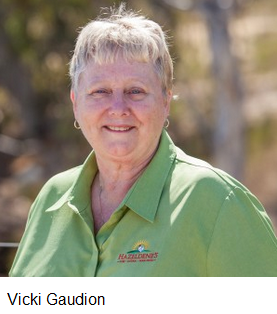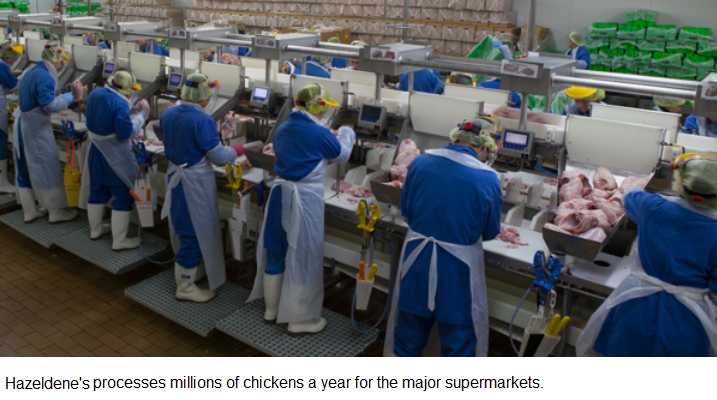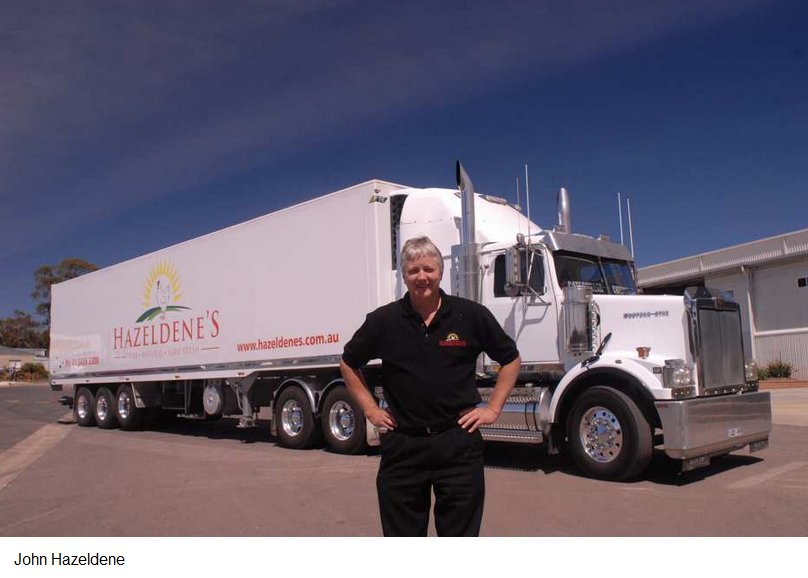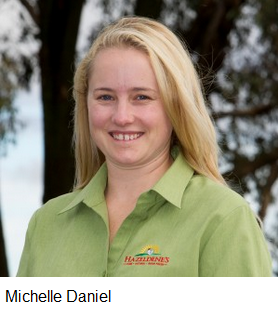A family business that's really hatched
The Hazeldene family from Bendigo have been breeding, hatching and processing chickens for the best part of 75 years.
The family business started during the Second World War, when 10-year-old Dick Hazeldene was asked to look after his brother Jack's 200 fowls as he went off to pilot a Wellington Bomber.
Sadly, Jack made the ultimate sacrifice and never came back to reclaim his fowls. Dick left school at 13 to start working full-time on the chicken farm. And it was not easy, to say the least. He had to sex chickens --separating hens from roosters -- during the nights to make ends meet. Dick used the extra money earned to expand his fledging business.
The business grew slowly and the whole family, including Dick's wife Mavis and their three children, John, Vicki (Gaudion) and Peter, were involved. Vicki, now a director of the family business, recalls her childhood memories on the farm.
“As we grew up, we had our own jobs,” she says. “It was always, ‘rush home from school to get your job done  and then you can go out play with your mates'. That actually created a bit of a work ethic which we have tried to pass on to the next generation.”
and then you can go out play with your mates'. That actually created a bit of a work ethic which we have tried to pass on to the next generation.”
While Vicki was helping her mother to pack eggs, John's job was to collect eggs and catch chickens. They all had to water, feed the chicken as well as clean out the sheds. As Dick's business grew bigger, he expanded beyond just producing eggs and ventured into producing chicken meat as well.
However, the expansion sewed the seeds of a disaster that nearly wrecked the business. Dick built all the hatching, laying and breeding facilities on the same block of land, which created hazardous conditions that were prone to the outbreak of diseases.
Then Avian Influenza hit his business. The Department of Agriculture closed down the farm and killed all the stock. “It really knocked us around a bit,” Vicki recalls.
“When that happened, we were just building a brand new processing plant. The day the Department of Agriculture came and told us what their verdict was, and they were going to close us down, the equipment for the processing plant was being driven up the road and had to be turned away.”
It was a devastating blow for Dick and his business. He borrowed heavily to rebuild his new facilities and was more or less forced to sell his egg quota. “ It was make or break, and we had to make,” says Vicki.
After the disastrous turn in the business, the Hazeldenes decided it was time to move on from just producing eggs to raise chickens and produce poultry meat. The money they got from selling their egg quota helped them to get back on their feet.
The business was back on the track. Before the outbreak of bird flu, it was producing 20,000 chickens a week. These days, it is producing 600,000 chickens a week, a thirty fold increase in less than two decades.

After passing the influenza test, the Hazeldenes had to deal with another perennial family business problem -- how to handle a larger-than-life and domineering family patriarch. Dick Hazeldene, who turned his initial flock of 200 fowls into a $250 million business enterprise, was not ready to retire, even in his 70s.
Dick was a traditional Australian farming man, who liked to be in control. “He wanted to do things his way; it was either his way or highway, and a lot of people took the highway,” Vicki laughs.
Though Dick was forward looking in investing in the latest technologies, he found it difficult to deal with the increasingly complex regulatory environment as well as the ever-growing size of his business empire.
Eventually John, Vicki and Peter demanded he retire. John became the managing director of the family business and Dick retired at age 75, after more than 60 years of hard work.

John realises that the business is becoming too big to be run in the old-fashioned way, and he wants to bring in more outside talent to help the family run the business. Michelle Daniel, a third generation Hazeldene and a granddaughter of the founder, works as the brand manager for the company. She described John as more “democratic” than her grandfather
“He has a senior management team, which my grandfather never would have. For him, there was going to be one boss and that was him. We did everything his way,” Michelle says.
However, not all three of Dick's children agree with the new approach. Peter Hazeldene wanted to retain absolute family control over the operation of the business and was not keen to delegate authority to outsiders. The philosophical clash resulted in Peter leaving the business, though he is still a shareholder and a director.
Vicki says Peter's decision to leave the business voluntarily was a huge relief.” It was a good decision for him and also for us. I am giving him a lot of credit for what he did,” she says.
At the moment, the most senior management team has four Hazeldenes and five non-family executives. The third generation of Hazeldenes are quite heavily involved in the running of the business, and Michelle is one of the new future torchbearers.
In future they want to introduce more branded goods under their own name instead of just producing white label goods for the major supermarket chains, like Coles, Woolworths and Aldi.
 Michelle, who worked more than a decade outside of the family business, is also thinking about taking the business into Asia.
Michelle, who worked more than a decade outside of the family business, is also thinking about taking the business into Asia.
Unlike the previous two generations, the younger Hazeldenes want the future leadership of the family company to be less focused on one person, such as Dick or John. “I think it needs to be shared out more with several members of the third generation,” says Michelle.
However, it seems that John and Vicki are in no hurry to retire at this stage. John just turned 60 this week, and still runs the business as the managing director. Vicki works three days a week.
“John is a bit of control freak and just like his father,” Vicki says.
















